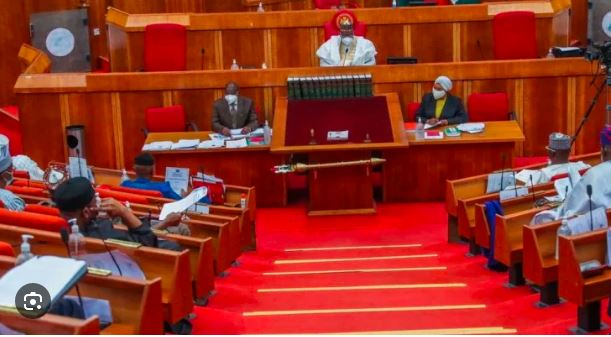The Nigerian power sector is grappling with a severe liquidity crisis, characterized by substantial tariff shortfalls and mounting debt owed to electricity generating companies (GENCOs). The Senate Committee on Power has voiced serious concerns over this escalating financial burden, revealing that the government’s outstanding payments to GENCOs have reached alarming levels. The committee’s chairman, Senator Enyinnaya Abaribe, disclosed that the government has failed to make any payments to power producers in 2025, accumulating a debt of N800 billion in just eight months. This adds to a pre-existing debt of over N3 trillion, painting a grim picture of the sector’s financial health. The crux of the problem lies in the substantial tariff shortfall, estimated at N200 billion per month. This shortfall represents the difference between the cost of generating electricity and the revenue collected from consumers through electricity tariffs. The inability of the government to cover this shortfall has created a cascading effect of unpaid bills throughout the power supply chain.
The liquidity crisis has severely hampered the operations of GENCOs, which are struggling to meet their financial obligations, particularly payments to gas suppliers. These gas suppliers, in turn, face constraints in providing the necessary fuel for power generation, further exacerbating the power supply challenges. This vicious cycle of debt and underpayment threatens the stability of the entire power sector, undermining efforts to improve electricity access and reliability. Senator Abaribe emphasized the urgency of addressing this crisis, highlighting the interconnectedness of the power sector’s financial woes. The inability of GENCOs to pay gas suppliers creates a bottleneck in the supply chain, limiting the availability of fuel for power generation and ultimately impacting the electricity supply to consumers.
The Senator stressed the need for a decisive intervention by both the federal and state governments to resolve the liquidity crisis and ensure the long-term viability of the power sector. He called for a collaborative approach to address the fundamental issues plaguing the industry, including the tariff shortfall and the mounting debt. Abaribe pointed out that other countries have successfully tackled similar challenges by making strategic decisions about energy subsidies, and Nigeria must also make difficult choices to navigate this crisis. The options include subsidizing fuel for transportation or subsidizing electricity for production, both of which have significant economic and social implications.
While acknowledging the challenges facing the power sector, the Minister of Power, Adebayo Adelabu, highlighted some positive developments, particularly an increase in power generation under the current administration. However, he also acknowledged the persistent issues of funding shortages and vandalism of energy equipment, which continue to hinder progress in the sector. The minister expressed concern over the alarming rate of vandalism, emphasizing the unique nature of this challenge in Nigeria. These acts of sabotage not only disrupt power supply but also impose significant financial costs on the sector, further exacerbating the liquidity crisis.
The Governor of Akwa Ibom State, Umo Eno, echoed the concerns raised by the Senate committee and the Minister of Power, emphasizing the importance of a stable electricity supply for economic growth. He stressed the crucial role of Small and Medium Enterprises (SMEs) as engines of economic development, noting that their potential can only be unlocked with reliable access to electricity. Governor Eno expressed optimism that the retreat, with its gathering of experts and stakeholders, would provide a platform for finding solutions to the critical challenges facing the power sector. The hope is that the discussions and recommendations from the retreat will translate into concrete actions that will lead to a more sustainable and efficient power sector.
The Nigerian power sector’s liquidity crisis is a complex issue with far-reaching consequences for the nation’s economy and its citizens. The escalating debt, coupled with the persistent tariff shortfall, has created a precarious situation that requires immediate and decisive action. A collaborative approach involving the federal and state governments, along with other stakeholders, is crucial to addressing the underlying issues and ensuring the long-term viability of the power sector. The choices made today will determine the future of Nigeria’s energy landscape and its ability to support sustainable economic growth. The hope remains that the current challenges can be overcome through concerted efforts and a commitment to implementing effective solutions.














